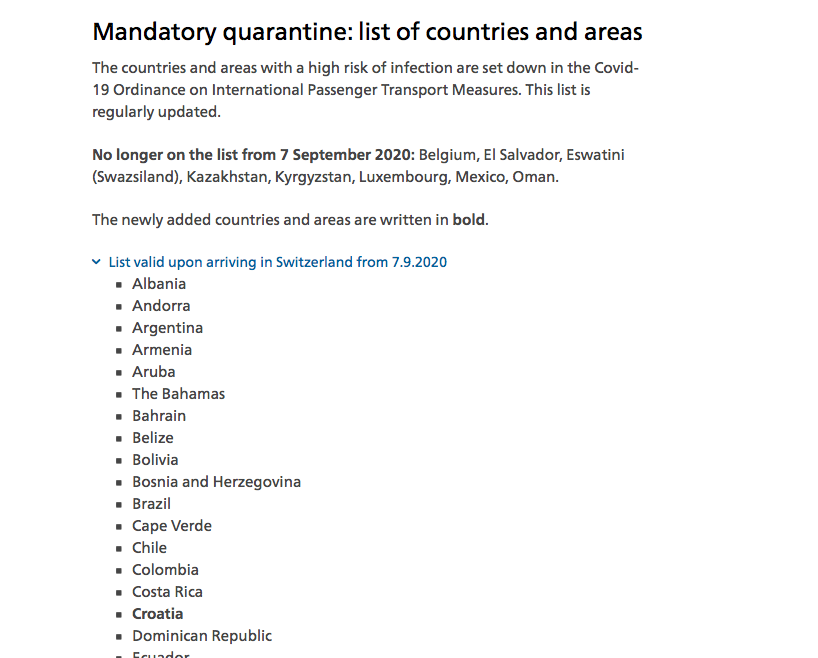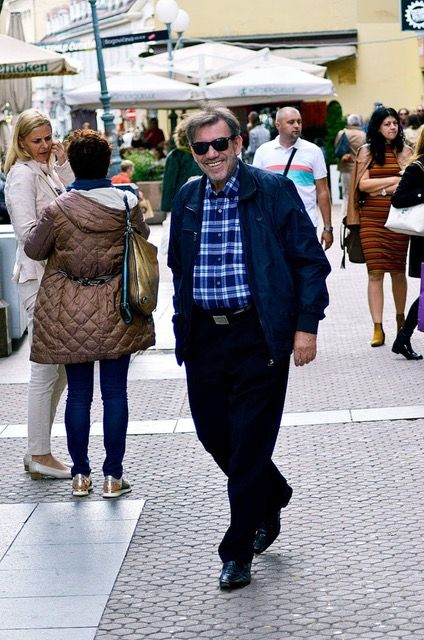VukovART 2021 to Return Art, Culture and Joy to the City of Vukovar
April 20, 2021 - With a five-year tradition already in place, VukovART 2021 promises a month of fun and exciting activities for Vukovar with visual eye candy as souvenirs to last.
A unique concept in the culture and art of Vukovar, the VukovART festival will be held from May 15 all the way to June 15, writes HRTurizam.
With a five-year tradition, the streets and squares of Vukovar will once again host numerous exhibitions and workshops, debates, children's programs, film, and literary programs, panel discussions, colorful lectures, and concerts. This event, organized by the City of Vukovar and Val Kulture association, co-financed by the European Social fund, promotes Vukovar as a Port of Art, changing the visual identity of the city making it a beautiful place to live. In addition to the local community, tourists also enjoy the eye candy of the city's open-air gallery. Artists Boa Mistura (Spain), BustArt (Switzerland), Jana Brike (Latvia), Mr Woodland (Germany), Victor Splash (Russia), Artez (Serbia), Juandres Vera (Mexico), Kerim Musanović (Bosnia and Herzegovina), Marion Ruthardt from (Germany), and Croatia's own Forest are ten artists who will come this year to give their contribution to the growing visual content of the city.
The festival will be opened by a beloved Croatian band Vatra (Fire), with performances of Mia Dimšić, musical composition CLUE, and vocal composition Watercolor in the following days too. During every larger event of the festival, „a superb craft scene and street food“ offers will be offered to visitors too.

© VukovArt - Art Harbour
Famous Croatian singer from Psihomodo Pop with a neck in painting as well, Davor Gobac will exhibit his paintings and also host Motivational and Art Workshop for children.
„There will also be an active weekend led by the Vukovar Half Marathon, and for a slightly more relaxing activity, a bicycle race will be organized to tour previous works of art“, says HRTurizam article.
Domagoj Jakopović Ribafish, Dusan Bučan, and Robert Knjaz will host travel lectures and the full program and more details can be found on VukovART official website and on social networks.
Learn more about Croatia's festivals on our TC page.
For more about Made in Croatia, follow TCN's dedicated page.
New Travel Warning: Switzerland Includes Croatia on the Red List
September 5, 2020 - After Germany, Austria, and Slovenia placed Croatia or Croatian regions on the red list of countries risky for travel, a new blow has come, as Switzerland includes Croatia on the red list.
EZadar reports that according to the Swiss Federal Office of Health, Croatia will be included on the red list from Monday, September 7, 2020. Besides Croatia, Switzerland has included Ukraine and San Marino on the red list. Belgium and Luxembourg were removed from the list.

So, what does this mean?
People arriving in Switzerland from the countries on the red list are required to go into quarantine. A negative test result does not exempt travelers from the mandatory quarantine requirement. More information can be found here.
Let us remind you that Germany put Sibenik-Knin, Split-Dalmatia, and Zadar counties on the red list over the last month. EZadar mentions that three more counties could be added to this list - Pozega-Slavonia, Dubrovnik-Neretva County, and the City of Zagreb.
Travelers from Germany are not banned from traveling to these areas, but the country suggests passengers reconsider their plans. In addition, it allows passengers to cancel trips at no additional cost.
Declaring an area risky in Germany means that those returning from vacation must be tested for coronavirus and remain in self-isolation until they receive a negative test result.
Unlike Germany, Austria and Slovenia included the whole of Croatia on the red list. Prime Minister Plenkovic asked Slovenia's neighbors to reconsider the German model and to include only some parts of the country on the red list.
Recall, Croatia remains on the UK quarantine as well, after it was added on August 22, 2020.
For the latest travel info, bookmark our main travel info article, which is updated daily.
Read the Croatian Travel Update in your language - now available in 24 languages
Switzerland Considers Croatia Safe For Travel
ZAGREB, Aug 19, 2020 - Croatia remains on Switzerland's list of countries safe to travel to, which is yet one more confirmation that countries consider Croatia to be a stable and safe tourist destination, Branimir Toncinic, an official of the Croatian National Tourist Board (HTZ), said on Wednesday.
On Tuesday, the health ministry in Switzerland updated its list of high-risk countries which now include Albania, Andorra, Aruba, Belgium, Belize, Gibraltar, Guam, India, Malta, Monaco, Namibia and Spain.
Toncinic, who is the head of the HTZ Austria branch that also covers Switzerland, today provided information about the updated list, pointing out that Croatia was not demoted that list.
"Including Croatia on the list of safe countries to travel to on the Swiss market is an important confirmation that they consider us to be a stable and safe destination. However the final decision is not made only according to the epidemiological situation but also based on the economic interests of individual countries," HTZ director Kristjan Stanicic said.
He added that it is still important to continue implementing epidemiological measures so that September and the post-season can generate tourism turnover from abroad.
HTZ informed that so far in August, tourists from Switzerland generated almost 140,000 bed nights, which is 82% of last year's turnover on the corresponding period in 2019, and since the beginning of the year there have been 510,000 bed nights generated by Swiss guests or 55% of last year's turnover.
Swiss tourists on the most part spend their vacation in Istria, Primorje-Gorski Kotar, and Split-Dalmatia counties.
For the latest travel info, bookmark our main travel info article, which is updated daily.
Read the Croatian Travel Update in your language - now available in 24 languages
Switzerland Continues to Limit Labour Market Access for Croatian Citizens
As Vedran Marjanovic/Novac writes on the 27th of May, 2019, as of June the 1st this year, Switzerland will fully open up its labour market for Bulgarian and Romanian citizens, while Croatian citizens will still have labour restrictions placed on them, and require a work permit in order to legally work within the country, which is not a member state of the European Union, according to a report from the Bulgarian State News Agency (BTA).
Referring to the Bulgarian Ministry of Foreign Affairs, BTA states that on the 15th of May, 2019, the Swiss Federal Council decided to open its labour market entirely for Bulgarian and Romanian citizens, thus leaving Croatian citizens as the only EU citizens who need to continue to wait until further notice. The agency notes that Switzerland and the European Union have agreed on the free movement of workers, which is a core principle of access to the EU's single market, but the country has exercised its fundamental right to restrict access to its labour market for the citizens of selected EU member states.
Similar measures were once put in place by the United Kingdom and Malta, but both countries have since dropped their restrictions, allowing Croatian citizens full access to their labour markets and the ability to work freely without needing any sort of work permit, and the Croatian Government quickly ensured the same conditions for Maltese and British citizens in Croatia.
The decision on the limited access to the Swiss labour market for Bulgarian and Romanian citizens is due to expire at the end of May this year as Switzerland used the maximum ten year period to postpone the full and free flow of workers from Bulgaria and Romania into Switzerland. According to BTA's data, about 11,000 Bulgarians already work in Switzerland.
For Croatian freelance workers in Switzerland, the decisions of the Swiss Government will continue to be in place until at least 2021. The Croatian Ministry of Labour has since warned that Switzerland could restrict the access of Croatian citizens to its labour market until 2026.
According to the data of the Swiss Immigration Office, in February this year, 5832 Croatian workers obtained work permits in Switzerland, while the total number of Croatian citizens living in Switzerland stood at a far higher 28,583. The number of new work permits that Switzerland is willing to grant to Croatian citizens by 2021 is limited to a mere 2500.
Upon the initiative of Croatian MP in the European Parliament Željana Zovko (HDZ), back in March, the European Parliament called on Switzerland, by a special resolution, to lift its barriers on Croatian workers, which was obviously unsuccessful. The Swiss National Party (SNP) remains committed to continuing the restriction of access to the Swiss labour market for Croatian citizens.
One million and 400,000 workers from the European Union (of which Switzerland is not a member) currently work there, and another 320,000 from the EU come to work in Switzerland every day. On the other hand, 460,000 Swiss nationals are employed by one of the EU member states.
Make sure to follow our dedicated politics page for much more.
Click here for the original article by Vedran Marjanovic for Novac/Jutarnji
Swiss Stage for Croatian Diaspora Performers in 2019
25th of November 2018 - That music is deeply rooted in the Croatian genes is a simple fact. Just look around a little bit, if you have never given it a thought, and you will realise that almost every village has its own dance and its own song. At least one, that is. This extends far from the country's borders and into the Croatian diaspora, and next year they'll have no less than a Swiss stage.
If you look alongside the coast, you can hardly find a hamlet without a ''klapa''.
And then all those festivals of all sorts (of music), everywhere. Folk, pop, jazz, new music, classical, experimental, you name it. However tiny, Croatia has given a noticeable contribution to the music of the world. Archives and museums can show you how music has been important over here since centuries. As an example, in the Museum of the Pharmacy in Dubrovnik, you can see a sheet of music from the early 12th century.
In the vicinity, just down the main street, you could find how Luka Sorkocevic, a local composer, wrote symphonies, a brand new music form, at the same time Haydn and Mozart were introducing it in Vienna.

Yes, we love music, and we love to sing. Don’t you?
There is quite a number of festivals of light music in the country, but there is someone who is not satisfied with the chances they offer to the Croats living abroad. His name is Zoran Škugor, and he has decided to organise a festival for all the Croatian diaspora on a Swiss stage, more specifically in Zurich.
Zoran is an ''old-timer'' in the field. He has been in the business for almost 50 years, has managed a long list of musicians and his musical productions are quite uncountable. You know, the festivals at home are hardly penetrable to a (Croatian) musician living abroad. Each festival has its own circles, quite locally oriented, somebody from abroad would have to jump over many obstacles in order to be recognised and valued as ''worthy''.

Zoran Skugor
''Knowing thousands of our people from diaspora, and having been asked by quite some talented Croats about how and why it is impossible for them to appear over here, I decided to organise a festival for all the Croats regardless of their residence, from Australia and both Americas to Europe. I joined hands with the Capo Music Production (CMP), established purposely and our first Music Festival of the Croatian Diaspora will take place in Zurich in February, 2019!'' says Zoran.
So good! Now what are the prerogatives to participate?
Any musician can apply by simply sending his new, still unpublished work to one of the two e-mail addresses: This email address is being protected from spambots. You need JavaScript enabled to view it. or This email address is being protected from spambots. You need JavaScript enabled to view it. . The composition should be between 3 to 3,5 minutes long, and it should be submitted to us not later than the 15th of December this year. A professional jury will make a final selection and there we go. The Festival is going to have its awards and a Grand Prix, and all compositions will be released on a festival CD.
Any particular limitations in genres?
We will start with light, pop rock, tamburitza and klapa (vocal, a cappella). We think that those four genres represent the most popular kinds of music among the Croats all over the world, and, not less, our musical roots will be there as well. We do hope that the festival will become traditional and that by further promotion of the artists participating it will contribute to the Croatian name around the world and a welcome refreshment and joy of music and being together to the Croats around the globe.
With precise dates of the Festival to be announced soon, if you are a Croat anywhere in the world and write music, or know someone who does and want to make a career out of it, pass this on and do not miss this very special opportunity yourself! Even as a member of the audience as you will have your say as a part of the jury of onlookers of those on the Swiss stage. Get ready and sing along!

Make sure to keep up with more information like this by following our dedicated Croatian Diaspora page.
Zagreb Bypasses Competition, Chosen as New Centre for Swiss Company
As Sergej Novosel Vuckovic/Poslovni Dnevnik writes on the 8th of November, 2018, Zagreb has been chosen in a group of 40 cities across Europe as the seat of the new centre for software in 40 cities of Europe, and has also entered the final six along with Sofia, Bucharest, Belgrade, Madrid, and Lisbon.
Croatian IT experts have thus had a brand new and welcome opportunity to stay in their home country created for them.
The Adcubum company from Switzerland came to Zagreb where it has just opened its Software Solutions Development Centre. The investment is worth 12 million euro over a three year period, as was explained by the director of the Croatian branch of the company, Bojan Poljičak.
"This is a Swiss greenfield investment, related to the development of a service centre for software development. These are high value added services, focused on development and exports,'' stated Poljičak, who was also once the director of Adecco Croatia. Adcubum has otherwise been in existence for twenty years, and has been active in Austria and Germany as well as at home in its parent country of Switzerland, specialising in business information technology solutions for insurance companies. There are 350 employees in total, and in Zagreb there are now seven more.
By the end of this year, there will be ten workers, and what is particularly stimulating for domestic experts is the announcement that they plan to employ 40 people each year over the next five years in order to reach a total of 200 employees in Croatia by the end of 2023.
"Profiles that are of interest to us are engineers for software development. We're very satisfied with the level of knowledge and skills of the existing candidates and at the beginning, we encountered a good level of interest. Just like it is in other countries, the main challenge will be to find, attract, and retain a sufficient number of suitable candidates, but we're positive about it and we expect that we'll be able to bring our plans to fruition,'' explained Poljičak. The main product of Adcubum, which will be done in Zagreb, is SYRIUS, a comprehensive software solution developed specifically for the business of an insurer.
"It allows them to deal with almost all of their processes within that solution and to adapt it, on the other hand, to their business specificities through the parametrisation and flexibility of the software solution," said Adcubum's Croatian affiliate director, noting that their goal in the Croatian capital is to increase additional human resources for further SYRIUS development.
"We're planning to form teams that will work on new software products in the application area called ''front end'', but also processing and analytics in the field of big data,'' Poljičak pointed out.
Just how did the Croatian capital manage to bypass the competition and be of such attraction to the Swiss company?
"They considered the prospects for the availability of IT professionals of high professionalism, foreign language knowledge, cultural similarities, and support from state institutions such as the Investment and Competitiveness Agency," Poljičak revealed.
"We want to use a very good ratio of expertise, professionalism, flexibility, and teamwork that candidates and potential employees have here in Croatia. We also want to provide our employees with work experience with colleagues and clients in Switzerland and Germany - as well as transfer part of our knowledge and our ways of working with colleagues in these countries,'' Bojan Poljičak concluded.
Adcubum's Chief Technology Officer Walter Meister and Swiss Ambassador to Croatia Emilia Georgieva were also at the opening of the Zagreb centre, pointing out that the Croatian branch was a result of the company's accelerated development due to an increased demand for services, expressing hope that this investment would strengthen Switzerland's status in the top ten foreign investors in the Republic of Croatia.
According to CNB/HNB (Croatian National Bank) data, direct Swiss investments in Croatia in 2016 amounted to a huge 6.2 million euro. In the first two quarters of this year, about 5.6 million of Swiss capital entered Croatia, and a total of about 42.4 million euro has been invested in the country since as far back as 1993.
Want to keep up with more news on business, investments and economy? Make sure to stay up to date with our business page.
Click here for the original article by Sergej Novosel Vuckovic for Poslovni Dnevnik
Croatia's Brightest Minds to Receive €4 Million in Funding from Switzerland
Four selected projects developed by young Croatian scientists will receive funding of 1 million euro each
Switzerland's Infront Purchases Croatia's B2B Business Run
New horizons for B2B?
Jobs for 500 Employees: Croats from Switzerland Invest 150 Million Euro
The aim is to raise the quality of tourist services to a higher level.


